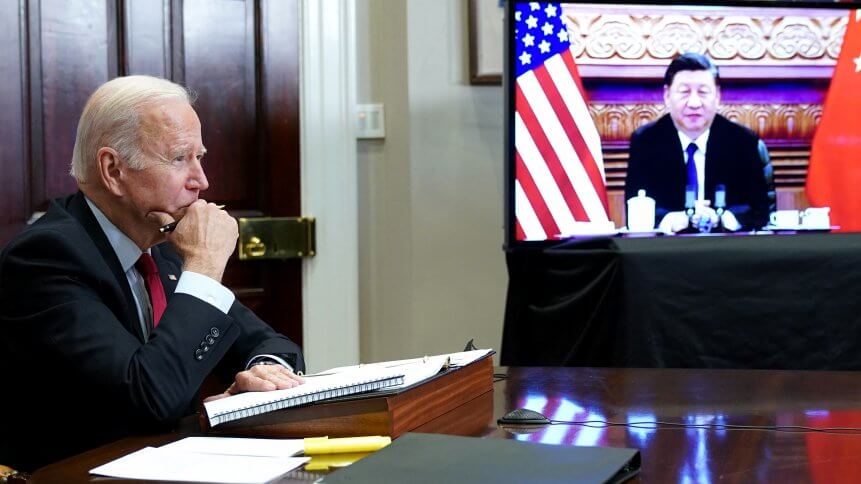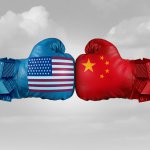Is the US starting a semiconductor war by restricting chip sales to China?

- The US government has imposed a new license requirement “for any future export to China (including Hong Kong), and Russia” in order to “address the risk that the covered products may be used in, or diverted to, a ‘military end use.’”
- Limits were placed on high-end GPUs that power supercomputers and artificial intelligence, impacting both Nvidia and AMD.
As if the technological arms race between the US and China were not detrimental enough to many consumer-related products and their manufacturers, a new battleground has now emerged and it goes a layer deeper. The US this week subtly imposed new restrictions on the sales of the components that powers supercomputers and artificial intelligence to China. At this point, the fresh limits affect high-end models of chips known as graphics processing units (GPUs), according to Silicon Valley companies Nvidia and Advanced Micro Devices (AMD).
In statements on Wednesday, Nvidia and AMD acknowledged the new restrictions. Nvidia, by far the largest GPU maker, said the federal government would now require it to seek export licenses to sell two high-end chips used with server systems in data centers. In a Securities and Exchange Commission filing by Nvidia, the US government was seen to impose a new license requirement, not only on sales to China, but also on Hong Kong and Russia.
The latest development is made to “address the risk that the covered products may be used in, or diverted to, a ‘military end use,'” according to the filing. The restrictions are part of a cold war between China and the US for primacy in advanced technologies. The Biden administration is building on limits begun under former President Trump.
The cutback would affect Nvidia’s A100 and H100 chips, which are designed to speed up machine learning tasks, and some products that fellow Silicon Valley firm AMD makes. It would affect “the company’s ability to complete its development of H100 in a timely manner or support existing customers of A100, and may require the company to transition certain operations out of China,” according to Nvidia, which said it has “engaged” with the government to address its concerns.
As Reuters indicated, Chinese businesses won’t be able to conduct cost-effective advanced computing, used for tasks including image and speech recognition in products ranging from smartphones to satellite imagery for weapons if they don’t have those US-originated chips. A spokesperson for AMD also told Reuters that the new license requirements would “stop its MI250 artificial intelligence chips from being exported to China,” but its MI100 chips are not believed to be affected and the firm doesn’t think the new policy would “have a material impact” on business.
Although China has designed many chips of its own, it generally relies on factories in Taiwan to manufacture the most advanced models. Taiwan’s President Tsai Ing-wen though has said that she looked forward to producing “democracy chips” with the US “to safeguard the interests of our democratic partners and create greater prosperity,” according to a live video posted to her Facebook page.
“In the face of authoritarian expansionism and the challenges of the post-pandemic era, Taiwan seeks to bolster cooperation with the United States in the semiconductor and other high-tech industries,” Tsai said during her meeting with Arizona Governor Doug Ducey in Taipei. Yet few in Taiwan’s microchip industry believe Taiwan can walk away from China.
The bulk of the electronics supply chain continues to run through China. For years, the value of China’s imports of semiconductors has exceeded that of oil. In 2021, it bought more than US$430 billion in semiconductors, 36% of which came from Taiwan, according to Chinese state media. Much of it goes into devices made for foreign firms, that are then exported to the world.
China too voiced its dissatisfaction – the Ministry of Commerce on Thursday accused the US of abusing export control measures to restrict the export of semiconductor-related items to China. He warned that the move would “hinder international scientific and technological exchanges and economic cooperation, and have an impact on the stability of global industrial and supply chains and the recovery of the world economy.”
For now, how far the restriction goes is still unclear. Perhaps the Biden administration will trail the actions of its predecessor, gradually tying the hands of its local companies when it comes to dealings with China, especially on semiconductors. From the looks of it, with the landmark CHIPS Act, and these fresh restrictions, the administration is set on a greater escalation of cold war hostilities – and that could hurt more than just China.










